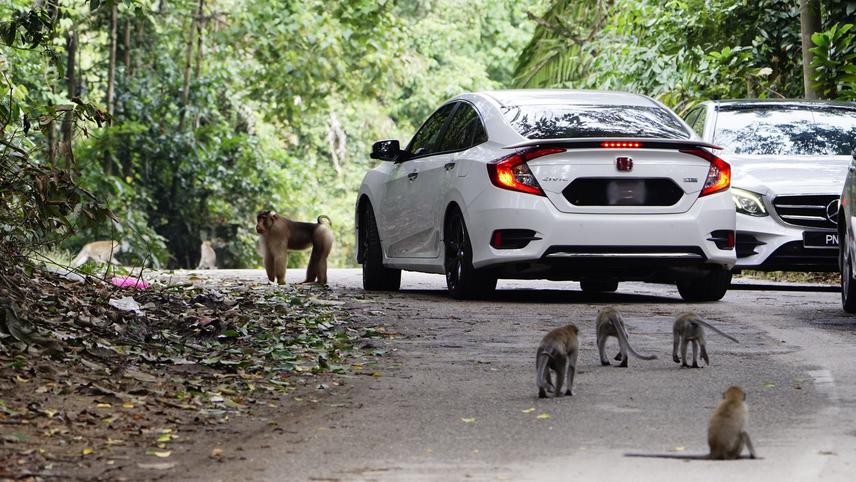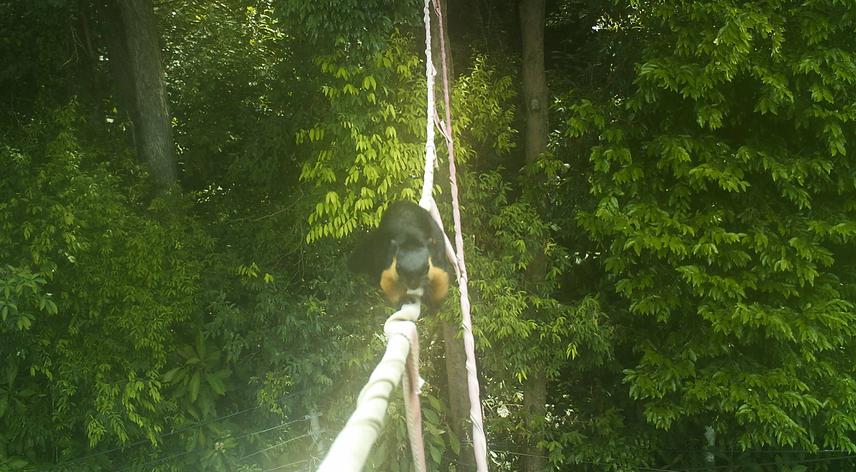Jo Leen Yap
Other projects
9 Feb 2016
Activity Patterns, Habitat Use and Diet of Dusky Leaf Monkeys (Trachypithecus obscurus) in Penang, Malaysia
22 Aug 2017
Road Ecology and Canopy Bridges for Arboreal Wildlife to Cope with Habitat Fragmentation in Penang
22 Feb 2021
Langur Project Penang: Conservation of Dusky Langurs in Malaysia Through Research, Canopy Bridges and Environmental Education
Primate species such as dusky langurs (Trachypithecus obscurus) and long-tailed macaques (Macaca fascicularis) are frequently observed in the forests and urban areas of Penang, Malaysia. One of the challenges in primate conservation is the increasing level of negative interactions between human and non-human primates in anthropogenic landscapes. The negative interactions in Penang occur mainly in residential areas, where complaints are lodged regarding dusky langurs and long-tailed macaques roaming near people’s houses and gardens. Langur Project Penang (LPP), a local primate conservation enterprise, aims to develop recommendations for humane and sustainable strategies to promote coexistence between humans and non-human primates through two projects in Penang:
'Bridge to Coexist' reduces roadkill incidents involving urban wildlife (especially monkeys), conducts community engagement activities, and mitigates negative human-primate interactions. The project will install an additional road canopy bridge in Penang to enable more arboreal wildlife to cross roads safely. ‘Coexistence for All’ specifically tackles the root of negative human-macaque interactions by empowering communities through education and collaboration with stakeholders, paving the way for positive and lasting sustainable changes in the area.

Macaques roaming along a busy road in Penang. © Langur Project Penang.
These two projects carry several conservation outputs. Firstly, a new canopy bridge will be installed to provide safe passage for wildlife, reduce roadkill, and connect fragmented habitats. Additionally, a different bridge design will be tested to help us gain a better understanding of the effectiveness of each design. Camera traps installed on the bridge will track wildlife usage and inform future bridge designs.

A black giant squirrel crossing on Ah Lai's Crossing. © Langur Project Penang.
Secondly, the project focuses on community engagement, which aims to work alongside residents and stakeholders to empower communities to manage human-primate interactions better. This might involve strategies like monkey-guarding and improving waste management.
Thirdly, citizen science initiatives to further engage with the community in data collection and long-term conservation efforts. This includes involving the community members to share monkey sightings, conduct fieldwork at the targeted study sites, and participate in education initiatives.
Finally, the project aims to raise awareness through public education campaigns highlighting the importance of responsible interactions with primates and the benefits of sharing our environment. Sharing project findings with the wider community will inspire further research and action towards human-primate coexistence in Peninsula Malaysia.
Header: Environmental Education at Tropical Spice Garden. © Lee Joey, Langur Project Penang.